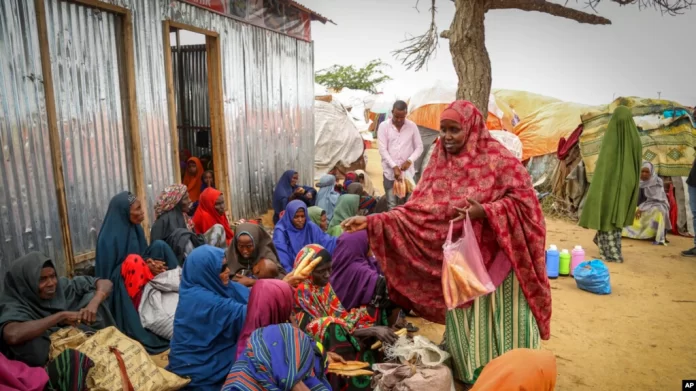Analysis: The Worst Famine in Decades Is Coming to East Africa East Africa is experiencing its worst drought in at least 40 years, which is causing a humanitarian catastrophe. According to the World Health Organization, more than 80 million people in Somalia, Ethiopia, Kenya, Sudan, South Sudan, Uganda, and Djibouti are food insecure, and nearly half of them must sell their goods to survive. The region is at risk of a famine on par with — or worse than — the one that Ethiopia experienced in the 1980s and which is estimated to have claimed 1 million lives, with forecasters predicting a high risk of rains failing for a fifth consecutive season and aid flows falling short of what is needed.
1. How bad is the situation right now?
Malnutrition is already pervasive, particularly among children, who require care in their millions. Huge tracts of agriculture have been destroyed, millions of head of cattle have perished, and rural villages have been ripped apart as families move in search of food and grazing. Dropout rates have increased, many parents cannot afford to keep their kids in school, and there are stories of girls as young as nine being married off for dowries or to relieve household financial strain. Even if severe droughts are also occurring in areas of the US, Europe, and other regions, they are more prepared to deal with the consequences than resource-constrained African countries.
2. What’s the backdrop?
Climate change has resulted in extreme weather patterns, and nations across Africa have increasingly been contending with drought and flash floods. The coronavirus pandemic and Russia’s invasion of Ukraine have compounded the continent’s woes, making it more expensive and difficult to obtain supplies of food, fuel and fertilizer. Food prices have since eased, but relief has yet to filter through to most consumers. Hunger is especially pervasive in the Horn of Africa nations of Somalia, Ethiopia and Kenya, according to the Famine Early Warning Systems Network.
3. Are there any more influencing factors?
Infestations of locusts, which like hot, dry weather, have destroyed most of the crops in eastern Africa. Internal strife has also plagued Ethiopia and Somalia, disrupting agriculture and making assistance distribution risky. Since 2006, the militant organisation al-Shabaab has been attempting to overthrow the government in Somalia and impose its own interpretation of Islamic rule. And in Ethiopia, a civil war raged for more than 16 months before a truce was reached in March between the government and rebels from the northern Tigray area. Relief organisations report that entry to conflict-affected areas is still difficult and that tensions are extremely high. On August 9, Kenya held presidential elections that might have distracted

